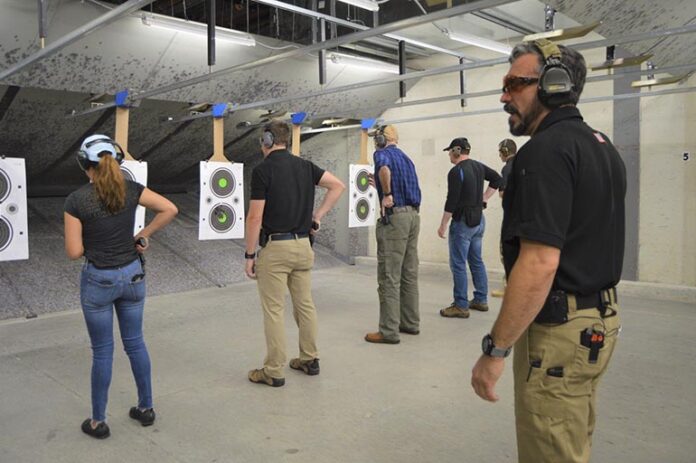I see so many folks go to ranges, only to practice the same drills over and over again. Many of these drills are basic “tests” that various schools use to determine basic competency. Some even have clever names and titles. I enjoy shooting some of these drills, but the amount of time, energy, and resources devoted to them are irrelevant to my overall training goals.
My goal is to create generalists. People who are well-rounded and capable of adapting their abilities and strategies to many different types of personal defense situations. Can you improve your general performance by practicing a specific skill set over and over again? Or does it do more harm than good for your general preparedness?
No prizes for guessing my answer.
The issue I have centers around the amount of time people spend on the firing line practicing rather than training. Practicing is performing a known skill or activity regularly to improve or sustain performance. Training is the action of learning a new skill.
The hard part for many: resisting the desire to get really good at one thing. Most shooters consider mastery of a single skill — such as quickly shooting a tight group at combat distance — a good thing. And it is…until you do it at the cost of the rest of your skills and capabilities.
Developing your overall range of self-defense skills requires you to acknowledge, accept, and improve both your strengths and your weaknesses. In short, to train to improve overall.
There’s a cost, of course, to addressing your weaknesses rather than working on and honing your strengths. To me, effective practice requires about ten two-hour range trips a year, firing approximately 100 rounds per trip (that’s not inexpensive these days). If all you have is 1,000 rounds per year to shoot, how many rounds do you want to invest in practicing things that are difficult rather than things that are easy?
If you’re spending 70 to 80 percent of your range time and ammunition budget practicing repetitively rather than training, you need to think about how you’re using your resources. It’s better to spend 20 to 30 percent of your time practicing your existing competencies and the rest training to do something that really challenges you (e.g., shooting one-handed).
That said, I still want folks to have fun shooting. For many of us, challenging ourselves by working on things we’re not good at — even when failure and frustration are more common than success and gains — is fun. If that’s not you, maybe it should be. Maybe your life will depend on it some day.
Jeff Gonzales is a former US. Navy SEAL and preeminent weapons and tactics instructor. He brings his Naval Special Warfare mindset, operational success and lessons learned to the world at large. He is the president of Trident Concepts in Austin, Texas.
Read the full article here


